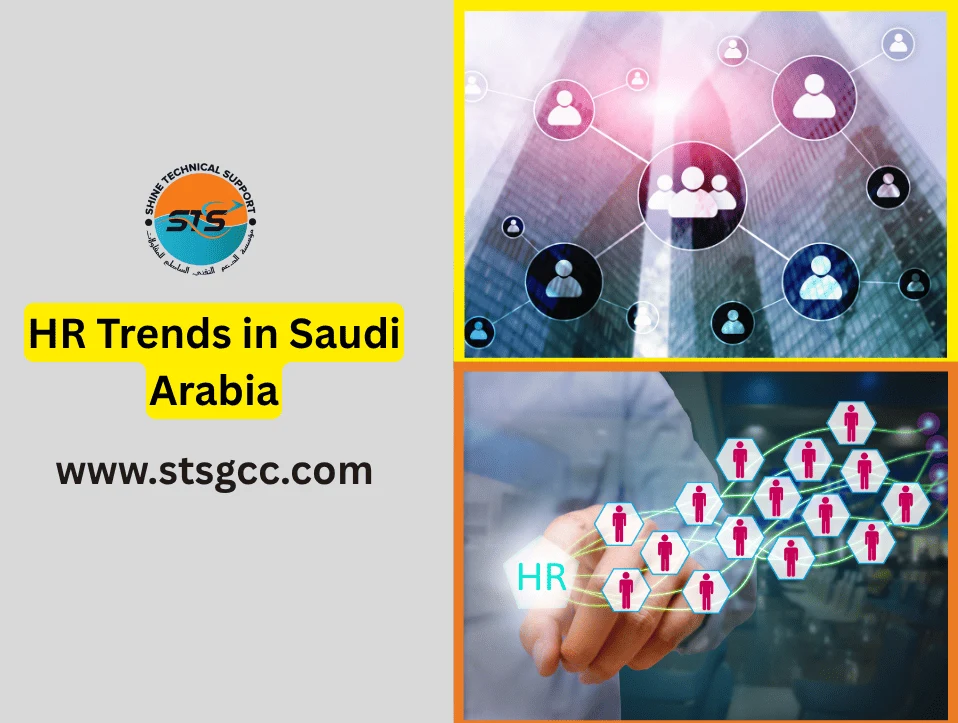Human Resources (HR) in Saudi Arabia is evolving rapidly as the Kingdom moves toward its Vision 2030 goals. With globalization, digital transformation, and demographic changes, employers must adapt to a shifting HR landscape. HR is no longer only about recruitment and payroll – it now plays a strategic role in shaping business competitiveness and workplace culture.
The year 2025 marks a turning point for HR leaders in Saudi Arabia. Employers are expected to balance workforce localization, employee well-being, diversity, and new technologies in order to stay competitive. This blog will guide employers through the key HR trends in Saudi Arabia for 2025, offering insights and strategies to help organizations align with these changes.
Workforce Nationalization and Vision 2030
One of the most important HR trends in Saudi Arabia is workforce nationalization, also known as Saudization. The government has introduced strict policies to ensure more job opportunities for Saudi nationals across industries. Employers need to prioritize hiring and training local talent to comply with labor laws and contribute to national goals.
For organizations, Saudization is not just a compliance measure. It represents an opportunity to tap into a young, dynamic, and ambitious workforce. Employers can enhance competitiveness by investing in training programs and mentorship initiatives that prepare Saudi employees for leadership roles.
By 2025, employers will face increasing scrutiny regarding their Saudization percentages. Industries such as retail, healthcare, finance, and hospitality are particularly under pressure. Forward-thinking employers should treat Saudization as a long-term strategy for growth rather than a short-term challenge.
Digital Transformation and HR Technology
Technology is reshaping HR practices across Saudi Arabia. Employers are adopting cloud-based HR systems, AI-driven recruitment platforms, and digital performance management tools. These innovations make HR processes faster, more efficient, and more transparent.
In 2025, digital HR will become the norm rather than the exception. Employers who invest in automation can streamline payroll, attendance, and employee records while freeing HR teams to focus on strategy. Data analytics will also play a crucial role in workforce planning and decision-making.
Another key area is digital recruitment. With the rise of AI-powered tools, employers can now analyze resumes, screen candidates, and even predict job performance. This reduces hiring time, ensures better matches, and improves employee retention rates.
Employee Well-being and Mental Health
Employee well-being has gained significant importance in Saudi Arabia, especially after the COVID-19 pandemic. Employers are realizing that productivity and performance are directly linked to physical and mental health. In 2025, HR strategies will focus more on holistic employee wellness programs.
Mental health is no longer a taboo subject in the workplace. Organizations are offering counseling services, wellness workshops, and flexible working hours to support employees. Employers who prioritize mental health create healthier and more engaged workplaces.
Work-life balance is another priority. Remote work, hybrid models, and flexible schedules are becoming permanent features in many industries. Employers who respect work-life balance gain a stronger reputation and attract top talent.
Diversity, Equity, and Inclusion (DEI)
Diversity is becoming a cornerstone of HR strategy in Saudi Arabia. With a large expatriate workforce, HR leaders must create policies that ensure fairness, equality, and cultural sensitivity. Employers who embrace diversity will foster innovation and creativity.
Gender inclusion is particularly important in 2025. As more Saudi women join the workforce under Vision 2030 reforms, employers must provide supportive environments. Equal pay, maternity benefits, and women’s leadership programs are critical areas of focus.
Inclusion is not only about nationality or gender – it also covers disability inclusion and support for marginalized groups. Employers who champion DEI will see stronger employee loyalty and improved business performance.
Skills Development and Continuous Learning
The Saudi labor market is changing rapidly, with new skills in demand across industries such as technology, healthcare, and renewable energy. Employers in 2025 will need to invest in continuous learning to stay competitive.
Upskilling and reskilling initiatives are vital for addressing skill gaps. Employers can introduce in-house training, online learning platforms, and collaborations with universities to build future-ready teams. These efforts ensure that employees adapt to new roles and technologies.
Leadership development will also take center stage. Employers should create clear career paths and invest in coaching programs that prepare employees for senior roles. This not only motivates workers but also ensures business continuity.
Hybrid Work Models and Flexibility
Remote work became a necessity during the pandemic, but it has now evolved into a long-term trend. By 2025, many employers in Saudi Arabia are adopting hybrid work models that combine office and remote work. This flexibility benefits both employees and organizations.
Employers gain access to a wider talent pool, reduce office costs, and maintain business continuity. Employees benefit from greater flexibility, reduced commuting, and improved work-life balance. The challenge for HR is to design policies that ensure fairness and productivity in hybrid settings.
Workplace technology plays a critical role in hybrid models. Employers must invest in digital collaboration tools, secure networks, and performance monitoring systems. This ensures smooth communication and accountability across remote teams.
Performance Management and Data-Driven HR
Traditional performance reviews are being replaced with continuous feedback systems. Employers in 2025 will focus on regular check-ins, goal tracking, and transparent evaluation methods. This creates a culture of accountability and growth.
Data-driven HR is another rising trend. Employers now use analytics to track employee performance, engagement, and turnover. This helps managers identify problems early and take corrective action.
Artificial intelligence will further improve performance management. Predictive analytics can highlight potential attrition risks and recommend training programs tailored to individual employees. Employers who adopt these tools will stay ahead of the curve.
ESG and Sustainable HR Practices
Environmental, Social, and Governance (ESG) principles are shaping HR policies in Saudi Arabia. Employers in 2025 will be expected to align with sustainability goals and demonstrate social responsibility.
Green HR initiatives are gaining momentum. Employers are promoting paperless processes, reducing carbon footprints, and encouraging eco-friendly workplace practices. Employees are increasingly drawn to companies that show a genuine commitment to sustainability.
Social responsibility also means fair wages, community engagement, and ethical recruitment. Employers who prioritize ESG not only meet compliance but also build stronger reputations in the market.
Compliance with Saudi Labor Laws
Compliance will remain a critical HR priority in 2025. Employers must stay updated with Saudi labor laws, Saudization quotas, and regulatory frameworks. Non-compliance can lead to fines, penalties, and reputational damage.
Employers need to monitor changes in labor policies, especially as Vision 2030 reforms continue to reshape employment rules. HR departments must build strong relationships with government authorities to ensure smooth compliance.
Legal compliance is not just about avoiding penalties. Employers who respect labor rights create positive workplace cultures and stronger employer branding. Employees value transparency and fairness in workplace policies.
Role of HR in Business Strategy
HR is no longer just an administrative function – it has become a strategic partner in business growth. Employers in 2025 must leverage HR to align workforce goals with organizational objectives.
HR leaders will play a key role in digital transformation, talent development, and change management. Employers who empower HR will see stronger business results and higher employee engagement.
By 2025, HR will be seen as the driver of innovation, culture, and sustainability. Employers should treat HR not as a cost center but as a critical investment for the future.
Conclusion
HR in Saudi Arabia is undergoing rapid transformation as Vision 2030 accelerates economic and social change. Employers must embrace trends such as Saudization, digital HR, employee well-being, DEI, skills development, hybrid work, and ESG practices. These trends are not optional – they are essential for staying competitive in 2025 and beyond.
Employers who adapt early will not only meet compliance requirements but also attract top talent, improve performance, and build sustainable organizations. HR is the bridge between people and business success, and in Saudi Arabia’s evolving market, it has never been more important.







